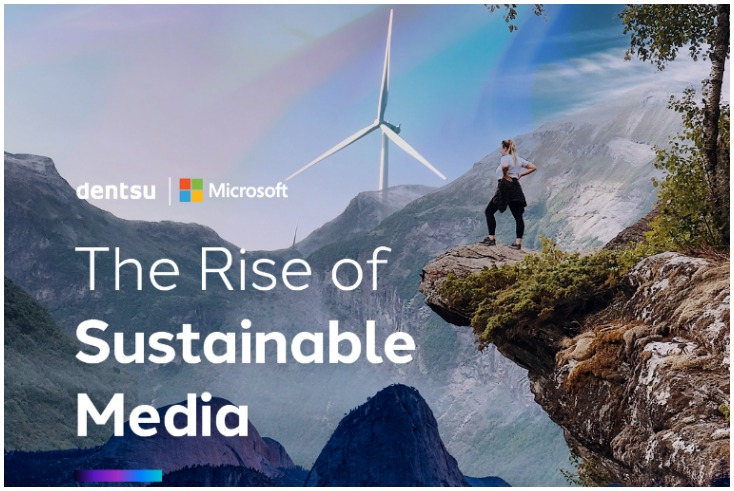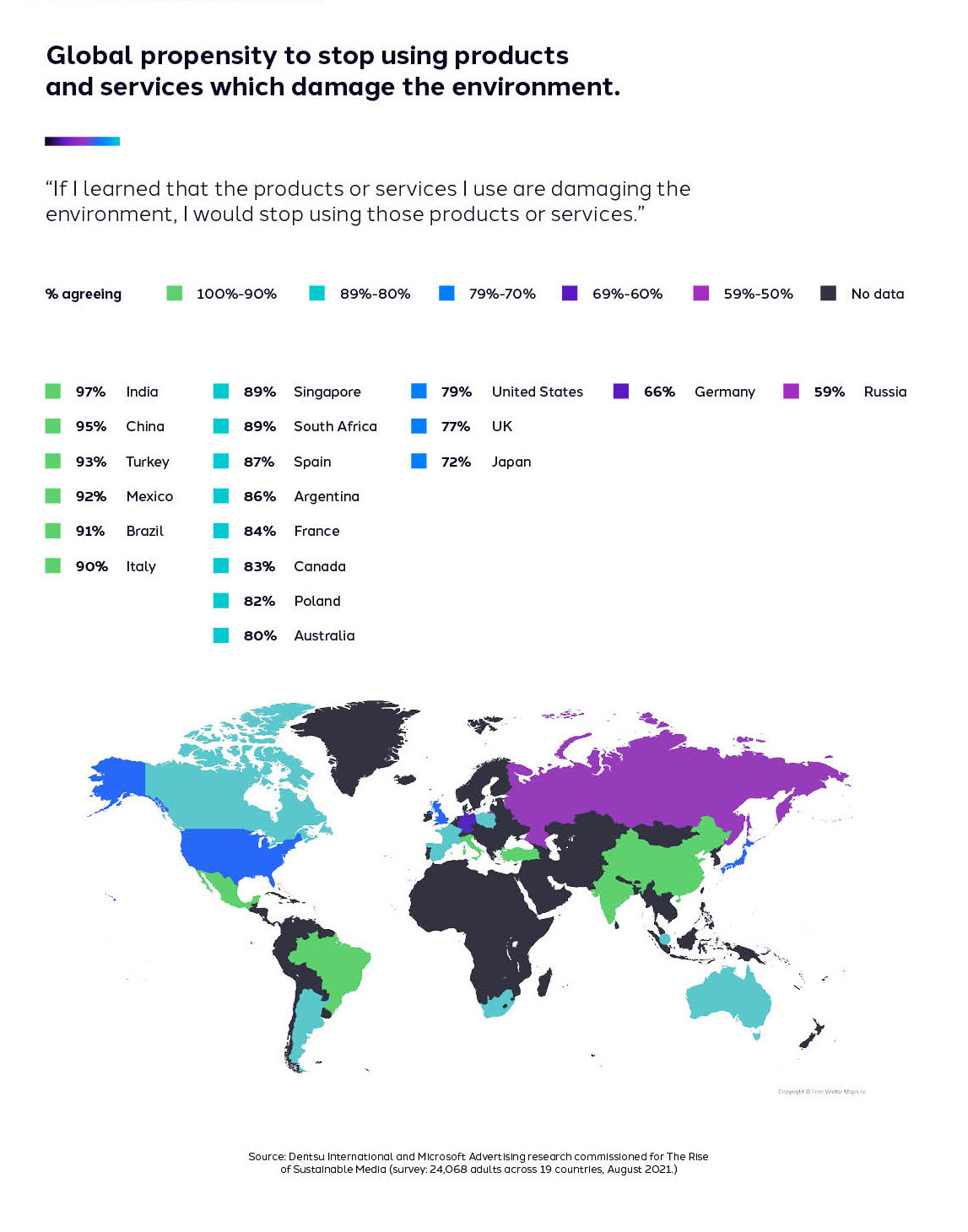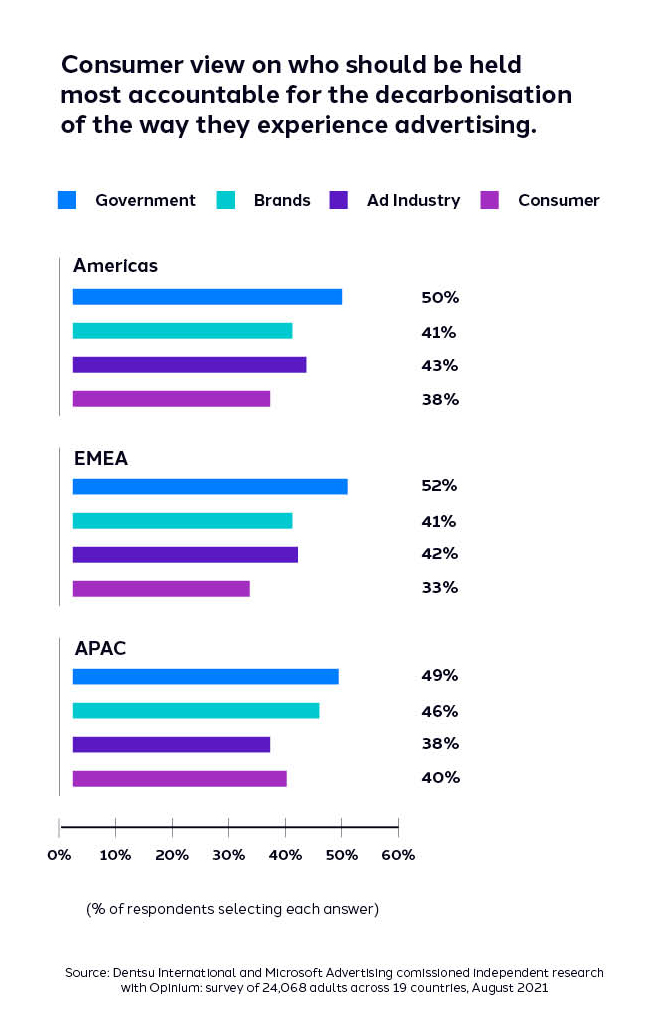Majority of consumers will ‘boycott’ brands not acting on climate change


Three in five consumers worldwide will boycott brands in the next year that do not take action on climate change, according to research by Dentsu and Microsoft.
Dentsu international and Microsoft Advertising carried out a study, The Rise of Sustainable Media, of more than 24,000 people in 19 countries on their attitudes towards sustainability.
Not only did it find that many consumers (59%) are willing to ditch brands that do not act enough to stop the climate emergency within a year, the research discovered the vast majority of those questioned (91%) wanted brands to demonstrate they are “making positive choices about the planet and environment more explicitly in everything they do”.
This ties in with another stat in the report that 42% of people thought brands should provide clear and comparable information on the carbon footprint of their products and advertising to make the brand “greener”.
The study also found 86% of people surveyed were concerned about climate change, ahead of 85% worried about Covid-19, 79% about health of family and friends with 79% and 76% around cost of living in their area.
The majority of consumers (87%) wanted to do more personally to combat climate change by switching to greener alternatives than their current brands (45%) and some were willing paying more for these (30%).

Brands’ green practices in their advertising were contributing factors for consumers in choosing one over another.
Just over three quarters of people in the research said within five years they would only want to spend money on brands practicing “green and sustainable advertising”.
However, results also showed that media delivery and consumption like browsing the Internet, watching TV, gaming or streaming music were not yet linked to increasing carbon emissions for most of the public. Only 17% or less of those surveyed thought each of these activities contributed negatively to climate change.
This followed a trend that consumers put governments (51%), businesses/brands (43%) and advertising industry (36%) ahead of themselves on who should be accountable for decarbonisation.

The study also highlighted a generational divide in attitudes to advertising, 45% of baby boomers (people born during the post-Second World War ‘baby boom’) believed consuming ads to be negative for the environment, but for Gen Z and Millennials (people born in the 1980s and later) it was 71% and 73% respectively.
Peter Huijboom, global CEO, media and global clients at Dentsu international, said: “The customer actions and potential boycotts we unearthed in our research are squarely
down to the consumer’s perception of a company and its behaviour, not necessarily the reality. We know many organisations are already taking positive action on climate change.”
He added: “As marketing experts it’s our responsibility to guide businesses and help educate and inform their customers, in order make them think, feel and act differently.
“As such, the marketing and advertising industry also has a critical role to play and, we need to work collaboratively to do this authentically; by walking the walk in how we deliver these messages through sustainable media.”
